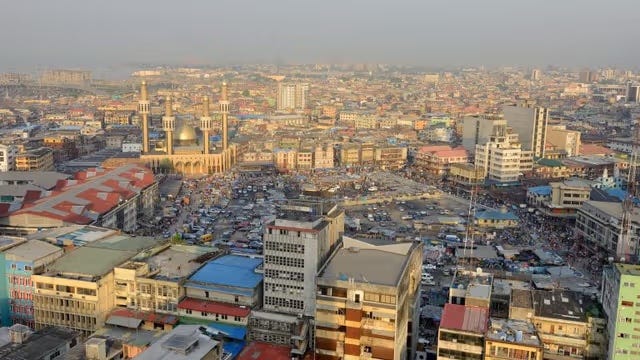Africa is a continent renowned for its extraordinary range of diversity, and its cities serve as a true testament to this fact. Every city possesses its distinctive blend of culture, history, and prospects. However, within certain regions of this diverse landscape, the daily lives of its inhabitants are plagued by difficulties stemming from persistent political instability, economic struggles, and a lack of fundamental amenities.
The Economist Intelligence Unit in its report “The Global Liveability Index 2023,” featured the world’s top 10 most liveable cities and the 10 cities considered the least liveable.
This study assesses the quality of life in cities across the globe by considering five essential factors which are as follows;
- Stability (crime and conflict levels)
- Healthcare (availability and quality)
- Environmental/cultural factors (climate, religious restrictions, food, and drinks)
- Education (availability and quality)
- Infrastructure (roads, public transport, water, housing, energy telecommunications quality).
According to the report, African cities such as Lagos (Nigeria) and Algiers (Algeria) have gained ground, with some improvements in their healthcare and education systems.
Despite the ongoing problem of corruption, there has been an increase in public funding allocated for infrastructure and public services. This increase has been particularly beneficial as COVID-19 cases have decreased.
However, half of the ten cities with the lowest liveability rankings are situated in Africa. Here are the liveability ratings for these African cities;
1. Tripoli, Libya
Tripoli’s position reflects the ongoing struggles faced by its residents. Political instability, economic difficulties, and a lack of basic services have severely impacted the quality of life. The city has been grappling with the aftermath of years of conflict, which has disrupted essential services and infrastructure. Efforts to rebuild and improve conditions have been slow, contributing to its low ranking.
The challenges in Tripoli are emblematic of broader issues facing Libya. The country’s political landscape remains fragmented, and economic recovery is hampered by instability and corruption. Basic services such as healthcare, education, and public infrastructure are in dire need of investment and development.
While there have been some efforts to address these issues, the road to recovery for Tripoli and other similarly affected cities is long and arduous. The international community and local governments must work together to create sustainable solutions that address the root causes of instability and improve the living conditions for residents.
The ranking of Tripoli as Africa’s least liveable city underscores the urgent need for comprehensive and sustained efforts to address the multifaceted challenges it faces. By focusing on stability, investing in essential services, and fostering economic opportunities, there is hope for a brighter future for Tripoli and its residents.
Summary Of The Ranking
Rank: 172
Rating: 40.1
Stability: 30.0
Healthcare: 45.8
Culture and Environment: 37.5
Education: 58.3
2. Algiers, Algeria
Nestled against the Mediterranean coast of North Africa, Algeria gained independence from France in 1962 following an eight-year war. It is the largest nation by area in Africa and the Arab world, and most of the country is covered by desert.
The World Bank classifies Algeria as an upper-middle income nation. The country is heavily reliant on energy exports in natural gas and oil. However, it faces many economic challenges, including high unemployment for women and youth and inequality among its different regions. This regional inequality has led to periodic unrest between Berbers and Arabs.
Summary Of The Ranking
- Rank: 171
- Rating: 42.0
- Stability: 35.0
- Healthcare: 50.0
- Culture and Environment: 45.4
- Education: 58.3
- Infrastructure: 30.4
3. Lagos, Nigeria
In 2022, Lagos is second among the worst cities to live in Africa after holding the position for two consecutive years and was only behind Damascus which has been held down on the list by social unrest, terrorism, and conflict.
Despite its vibrant economy and bustling atmosphere, Lagos faces challenges that contribute to its low ranking, including pervasive corruption and infrastructure issues. However, the city has shown some improvements in healthcare and education, leading to a slight gain in its overall ranking.
Summary Of The Ranking
- Rank: 170
- Rating: 42.2
- Stability: 25.0
- Healthcare: 37.5
- Culture and Environment: 54.4
- Education: 41.7
- Infrastructure: 53.6
4. Harare, Zimbabwe
Harare’s high crime rate and political instability were cited as factors affecting the overall livability of the city.
Summary Of The Ranking
Rank: 166
Rating: 43.8
Stability: 40.0
Healthcare: 29.2
Culture and Environment: 56.7
Education: 66.7
Infrastructure: 35.7
5. Douala, Cameroon
It is perhaps unsurprising the African city made the worst city list, as it scores very poorly across healthcare, education, infrastructure, and culture and environment. However, a higher stability score helped keep it from the top spot.
Summary Of The Ranking
Rank: 164
Rating: 46.4
Stability: 60.0
Healthcare: 29.2
Culture and Environment: 51.2
Education: 41.7
Infrastructure: 42.9










